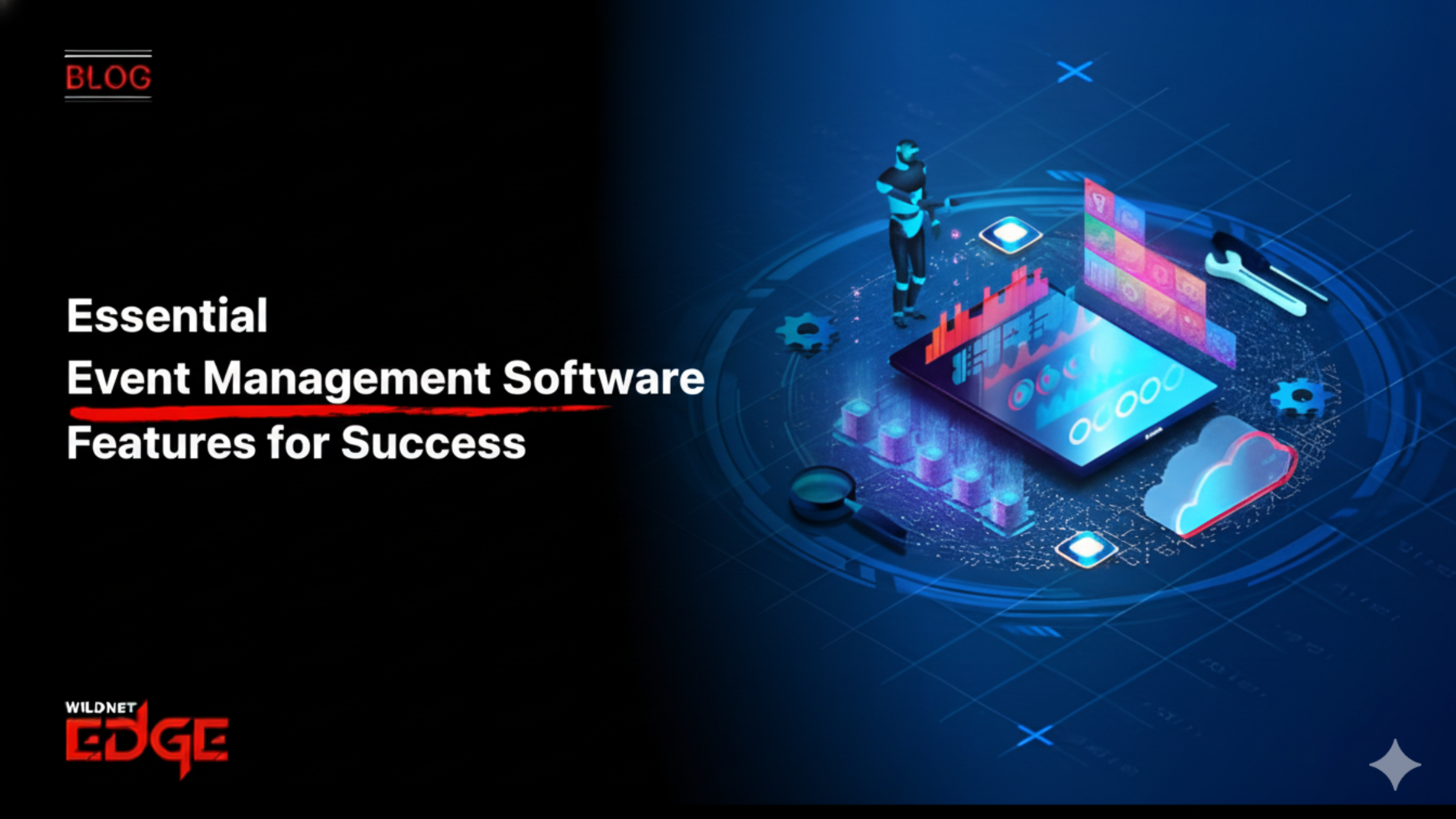The healthcare industry has long been plagued by inefficiencies, from communication breakdowns and delays in treatment to difficulties in data management. Patients often find themselves navigating through these frustrations, leading to suboptimal care experiences. Have you ever wondered how technology could redefine patient care? How can innovative software solutions bridge the gaps in healthcare delivery? Enter healthtech software development—the answer that holds the potential to enhance patient outcomes remarkably. By leveraging cutting-edge technology, healthcare providers can create digital tools that not only streamline processes but also serve as powerful enablers of better health management.
Significance of HealthTech Software Development
Impact on Patient Care
Healthcare delivery is gravely impacted by the implementation of healthtech software development. Innovative software solutions are being tailored to enhance patient treatment plans and outcomes. For instance, electronic health records (EHR) software facilitates real-time data sharing and ensures that healthcare professionals have immediate access to a patient’s medical history. This openness promotes personalized treatment plans that cater specifically to each patient’s unique health needs.
Moreover, predictive analytics—an application within healthtech—uses historical data to predict future patient conditions, thus allowing healthcare providers to offer early interventions. For example, a study by the American Journal of Managed Care found that integrating predictive analytics led to a decrease in hospital readmissions by 20%.
Integration with Existing Systems
An effective healthtech software solution is not only revolutionary in its capabilities but must also integrate seamlessly with existing healthcare infrastructures. This integration facilitates a smoother transition to digital practices and enhances staff productivity. For example, software can be developed to work with legacy systems, allowing for uninterrupted access to essential data while reducing the costs associated with completely overhauling existing infrastructures.
By utilizing APIs (Application Programming Interfaces), developers can ensure new healthtech tools interact effectively with established systems from various vendors. This is crucial as it avoids data silos and supports a holistic view of patient information, contributing to improved care coordination.
Digital Health Tools in Treatment Plans
Types of Digital Health Tools
The array of digital health tools available in the marketplace can vastly improve treatment plans and patient engagement. Here are a few types of these tools:
- Telehealth Platforms: These enable remote consultations, expanding access to care for patients who cannot visit healthcare facilities.
- Mobile Health Applications: Apps such as MyFitnessPal and Headspace offer tracking and cognitive-behavioral support, promoting patients’ health maintenance outside clinic hours.
- Wearable Devices: Gadgets like fitness trackers and smartwatches collect health data like heart rate and sleep patterns, providing actionable insights for both patients and physicians.
- Patient Portals: These online platforms give patients access to their medical records, lab tests, and prescription refills, allowing them to manage their healthcare effectively.
Benefits of Digital Health Tools
Digital health tools bring a multitude of benefits that significantly enhance patient management and adherence to treatment plans. These technologies allow for improved accessibility to tailored health resources, empowering patients to take charge of their health.
One key advantage is the heightened level of patient engagement. For instance, a study by the Journal of Medical Internet Research found that patients using mobile health apps reported a 30% increase in medication adherence rates. Furthermore, these tools can proactively remind patients about important health tasks, from medication schedules to follow-up appointments, reducing drop-out rates in treatment plans.
Another benefit is the ability to collect real-time data. This insight enables physicians to make informed decisions and adjustments to treatments based on a patient’s current state. Consequently, this allows for dynamic treatment plans, which lead to better patient-centered outcomes.
Challenges in HealthTech Software Development
Navigating Regulatory Compliance
One of the foremost challenges in healthtech software development is navigating the rigorous regulatory landscape. Healthcare is one of the most regulated industries in the world, and compliance with standards such as HIPAA (Health Insurance Portability and Accountability Act) in the U.S. is crucial to protect patient privacy and data security. Developers must be vigilant in ensuring that software solutions maintain compliance while still functioning effectively.
For example, software companies are required to undergo audits, provide extensive documentation, and frequently update their systems to adhere to evolving regulations. Ongoing training and education on regulatory requirements should also be a priority, ensuring that development teams remain up-to-date and compliant.
Data Security Concerns
As healthtech software solutions become more advanced, so do the data security risks associated with them. The sensitive nature of patient information makes it a prime target for cyberattacks. Developers must implement stringent cybersecurity measures to safeguard data effectively.
This includes encrypting data in transit and at rest, as well as employing multi-factor authentication for access to digital health tools. Regular vulnerability assessments and updates are also essential in keeping potential threats at bay. By prioritizing data security, healthtech software development can bolster patient trust, which is crucial in fostering adoption of these digital tools.
Trends Shaping HealthTech Software Development
AI and Machine Learning Innovations
AI and machine learning are at the forefront of transforming patient diagnostics and care within healthtech software development. These technologies can analyze vast amounts of data quickly, identifying patterns that may go unnoticed by human analysts.
For instance, machine learning algorithms can help predict disease outbreaks based on social media trends, allowing for timely interventions. Additionally, AI-powered chatbots are revolutionizing patient interactions by providing 24/7 support for answer queries, scheduling appointments, and even triaging health concerns. This can significantly reduce workload on healthcare staff while enhancing patient experiences.
Mobile Health Applications Rise
The growth of mobile health applications has become a defining trend in healthtech software development. With the proliferation of smartphones, patients now have unmatched access to health information and management tools at their fingertips.
Mobile applications enable real-time communication between physicians and patients, allowing for timely adjustments to treatment plans based on daily data inputs. For example, an app developed for diabetes management can notify patients of medication times and provide reminders for blood sugar checks, ultimately empowering them to take ownership of their health.
As such, mobile health apps not only bridge communication gaps but also enhance overall engagement, leading to better health outcomes.
The Future of HealthTech Software Development
Predictions for Upcoming Technologies
Future trends indicate that healthtech software development will increasingly focus on personalized medicine and patient-centered approaches. As technology evolves, one can expect solutions that cater specifically to individual patient needs through the integration of genomic data, behavioral health insights, and lifestyle choices into treatment plans.
Moreover, advancements in augmented reality (AR) and virtual reality (VR) are poised to revolutionize medical training and patient education. For example, using AR, medical professionals can visualize complex surgeries before undertaking them, thereby reducing the margins for error and increasing effectiveness during actual procedures.
Collaboration Across Industries
Collaboration across various industries will undoubtedly play a crucial role in innovating healthtech solutions. Partnerships between healthcare organizations, technology providers, and even pharmaceutical companies can yield groundbreaking developments. By sharing knowledge and resources, these collaborations can lead to more comprehensive solutions that address multifaceted patient needs.
This interdisciplinary approach can create holistic platforms that not only track health data but also integrate wellness, financial planning, and other factors influencing patient health. As we move along this trajectory, expect to see holistic solutions that transcend traditional boundaries, ultimately leading to improved patient care.
Choosing a HealthTech Software Development Partner
Key Factors to Consider
When selecting a healthtech software development partner, several key factors must be taken into account to ensure a successful collaboration. Expertise is paramount. Look for a company with a proven track record in the healthcare sector. Experience in regulatory compliance, cybersecurity, and system integration is equally critical.
Cost-effectiveness is also essential; however, it should not come at the expense of quality. A reliable development partner should offer transparent pricing models to avoid hidden fees that can strain budgets later on. This will help maintain project stability and ensure adequate resources throughout the development cycle.
Benefits of Working with Experts
Teaming up with experts like Wildnet Edge can significantly boost your healthtech software development aspirations. As an AI-first company, Wildnet Edge harnesses cutting-edge technology and expertise to create innovative solutions tailored for healthcare providers. Their vast experience in developing compliant and secure healthtech applications positions them as a trusted authority in the field. Working with such professionals not only enhances the quality of the final product but also enables smoother project execution through industry insight, thus improving client satisfaction.
Conclusion
In conclusion, healthtech software development stands as a transformative force in modern healthcare, revolutionizing how patient outcomes are achieved. By integrating innovative digital health tools and overcoming challenges like regulatory compliance and data security, healthcare providers can significantly enhance patient care experiences. As we look to the future, the continuous evolution of technologies, particularly AI and mobile health applications, promises exciting developments that will further redefine healthcare delivery.
For those interested in enhancing their digital health solutions, partnering with experts like Wildnet Edge can provide the necessary tools and insights to innovate successfully. Embrace the future of healthtech to transform patient outcomes and elevate care standards.
FAQs
Q1: What is healthtech software development?
Healthtech software development involves creating digital solutions that enhance healthcare delivery and patient management, simplifying interactions and improving outcomes.
Q2: How do digital health tools improve patient outcomes?
Digital health tools offer patients easier access to care, enhance tracking of health data, promote better communication with providers, and ultimately lead to improved adherence to treatment plans.
Q3: What challenges exist in healthtech software development?
Common challenges include navigating regulatory compliance, addressing data security concerns, and ensuring seamless integration with existing healthcare systems.
Q4: What trends are influencing healthtech software development?
Trends such as AI innovations and the rise of mobile health applications are reshaping how care is delivered, enabling personalized and timely health interventions.
Q5: How can I choose a reliable healthtech development partner?
When selecting a partner, consider their expertise, past projects, ability to meet regulatory standards, and the transparency of their pricing model to ensure a successful collaboration.

Nitin Agarwal is a veteran in custom software development. He is fascinated by how software can turn ideas into real-world solutions. With extensive experience designing scalable and efficient systems, he focuses on creating software that delivers tangible results. Nitin enjoys exploring emerging technologies, taking on challenging projects, and mentoring teams to bring ideas to life. He believes that good software is not just about code; it’s about understanding problems and creating value for users. For him, great software combines thoughtful design, clever engineering, and a clear understanding of the problems it’s meant to solve.
 sales@wildnetedge.com
sales@wildnetedge.com +1 (212) 901 8616
+1 (212) 901 8616 +1 (437) 225-7733
+1 (437) 225-7733















 ChatGPT Development & Enablement
ChatGPT Development & Enablement Hire AI & ChatGPT Experts
Hire AI & ChatGPT Experts ChatGPT Apps by Industry
ChatGPT Apps by Industry ChatGPT Blog
ChatGPT Blog ChatGPT Case study
ChatGPT Case study AI Development Services
AI Development Services Industry AI Solutions
Industry AI Solutions AI Consulting & Research
AI Consulting & Research Automation & Intelligence
Automation & Intelligence















